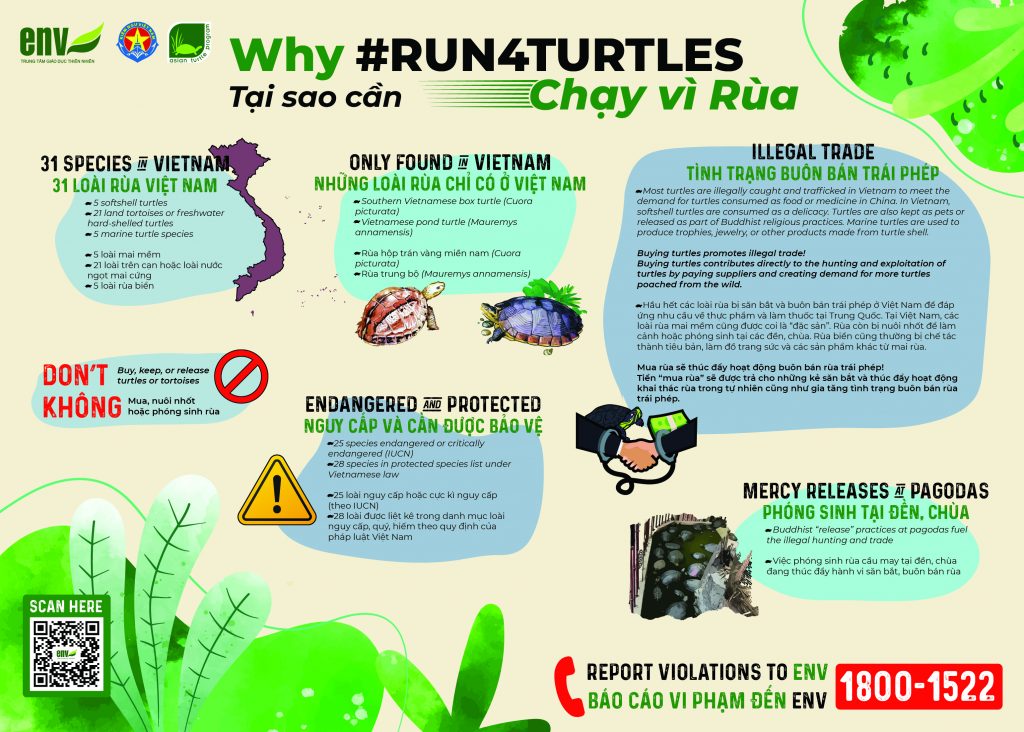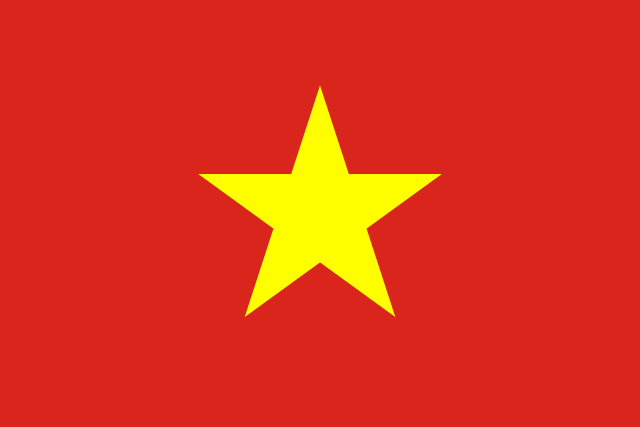31 Species Native to Vietnam
There are 26 species of tortoises and freshwater turtles native to Vietnam. Five of these species are soft-shell turtles, and the remaining 21 are land tortoises or freshwater hard-shelled turtles. Vietnam is also home to 5 marine turtle species.
Only Found in Vietnam!
Vietnam has TWO endemic species that you cannot find anywhere else in the world: The Southern Vietnamese box turtle (Cuora picturata), and the Vietnamese pond turtle (Mauremys annamensis).
Endangered and Protected
Of Vietnam’s 31 native species, 28 are protected under Vietnam’s wildlife protection laws, with 13 of these being prohibited from any form of commercial trade. In addition, CITES lists 30 native Vietnamese species for which permits are required for any form of cross-border trade.
Struggle for Survival
Most turtles are illegally caught and trafficked in Vietnam to meet the demand for their consumption as food or medicine in China. In Vietnam, softshell turtles are consumed as a delicacy. Turtles are also kept as pets or released as part of Buddhist religious practices. Marine turtles are used to produce trophies, jewelry, or other products made from turtle shells.
The World’s Most Endangered Turtle
The Red River watershed was once home to the rarest turtle in the world, the critically endangered Swinhoe’s softshell turtle (Rafetus swinhoei). Swinhoe’s softshell turtle has special cultural significance in Vietnam, with a large and very old individual until recently inhabiting Hoan Kiem Lake in the center of Hanoi city. With only one known living Swinhoe’s turtle at a zoo in China, researchers continue to search wetlands and lakes throughout the species’ native range for survivors.
Turtle Crime is Serious Crime
Since 2005, ENV’s Wildlife Crime Unit has logged 3,087 cases involving the advertising, possession, and trafficking of more than an estimated 90,000 tortoises and freshwater turtles. Over the past five years, authorities in Vietnam have seized 6,189 turtles in 524 turtle trafficking cases, while the courts have handed down stiff sentences ranging from nine months to 10.5 years in prison in some of these cases – a promising record, and a valuable indicator of progress that will help deter some criminals from engaging in turtle trafficking.
What YOU Can Do
Buying turtles directly contributes to their hunting and exploitation by paying suppliers and creating demand for more turtles poached from the wild.
-
- Don’t buy, keep, or release turtles or tortoises, or buy their products
- Report violations to the ENV Wildlife Crime Hotline at: 1800 1522


